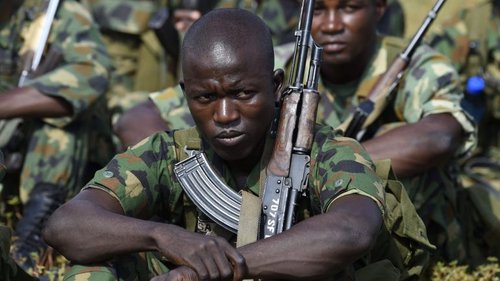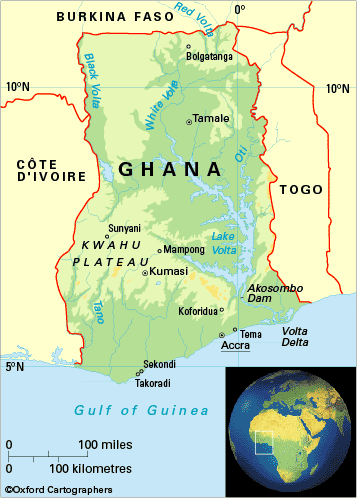There is no doubt that 9/11 is one of those dates that will be engraved in history by fire and blood. We can say there is a game-change after that date in all aspects (social, economic, international relations, and above all, security and defense).
With 9/11, a phenomenon was given form, especially in the West, as is the TERRORISM OF JIHADIST ETIOLOGY, although it was an element that hit different parts of the world since the 80s of the twentieth century. The world ceased to be a safe place, and any continent, any country, and any city could be hit by Al Qaeda or its various franchises (led by Saudi Osama Bin Laden), which was the dominant group at that time. Al Qaeda now shares the stage with the self-styled "Islamic State" or Dáesh (unruly son of AQ) and their respective subsidiaries. GLOBAL TERRORISM was born.
Just in 2018, there were more than 10000 victims compared to more than 13000 victims in 2017, according to data from the OIET (International Observatory for Studies on Terrorism).
The majority of the deceased occurred in 3 areas:
Sub-Saharan Africa
-The Middle East and the Maghreb
-Central and South Asia

Despite this, President Macron stated a few days ago that "Europe is under attack," and the events of Friday, November 29 in London, unfortunately only reinforce that statement. But if there is one area where jihadism is surprisingly strengthening and hitting cruelly and terribly, it is SAHEL and the adjacent regions, reaching as far as South Africa. There we have the case of Mozambique, where a few years ago there was no terrorist presence, and in 2017, there were four deaths, rising to 109 in 2018. But there is a country that is currently staying out of this phenomenon not being hit with the virulence that its neighboring countries suffer; it is Ghana.
Ghana is situated to the West of Africa, established as a semi-presidential republic, is one of the most stable democracies of the African continent, bordered on the north by Burkina Faso, on the east by Togo to the West by Côte d'Ivoire and on the south by the Gulf of Guinea.
 Ghana reflects the great diversity of the African continent. Lush rainforest covers the south, and the coastal plains give way to the Savannah, which opens towards the north, where heat and dryness give us the first impression of the climate of North Africa near the border with Burkina Faso. Southern Ghana is home to large banana plantations, white sandy beaches, and long rows of castles and forts built by European slave traders 500 years ago. Meanwhile, the center of Ghana is home to the Ashanti, one of the great civilizations close to the Sahara, as well as Lake Volta, one of the largest freshwater lakes in the world. The northern zone is flat, and it extends the Savannah, which is home to animals frequently associated with countries such as Kenya or Tanzania. Elephants, baboons, buffaloes, antelopes, wild boars, and the occasional big giant cat live in Mole National Park. There are five major ethnic groups in Ghana that speak more than 50 different dialects, yet English is the official language that unifies the various tribes. Ghana was the first African colony to gain independence from Britain in 1957. Although there is a great European influence (Portuguese, British, and Dutch), the inhabitants of Ghana struggle to build a civilized nation and maintain a culture that is primarily African.
Ghana reflects the great diversity of the African continent. Lush rainforest covers the south, and the coastal plains give way to the Savannah, which opens towards the north, where heat and dryness give us the first impression of the climate of North Africa near the border with Burkina Faso. Southern Ghana is home to large banana plantations, white sandy beaches, and long rows of castles and forts built by European slave traders 500 years ago. Meanwhile, the center of Ghana is home to the Ashanti, one of the great civilizations close to the Sahara, as well as Lake Volta, one of the largest freshwater lakes in the world. The northern zone is flat, and it extends the Savannah, which is home to animals frequently associated with countries such as Kenya or Tanzania. Elephants, baboons, buffaloes, antelopes, wild boars, and the occasional big giant cat live in Mole National Park. There are five major ethnic groups in Ghana that speak more than 50 different dialects, yet English is the official language that unifies the various tribes. Ghana was the first African colony to gain independence from Britain in 1957. Although there is a great European influence (Portuguese, British, and Dutch), the inhabitants of Ghana struggle to build a civilized nation and maintain a culture that is primarily African.
It is currently one of the most stable countries in the sub-Sahelian area with a stable democracy with continuous stable electoral processes. It exerts a significant influence on the African continent. Ghana belongs to international organizations such as the United Nations (UN), the African Union (AU), the Commonwealth of Nations, and the World Trade Organization (WTO). It is also the largest peace provider in sub-Saharan Africa, being the largest provider of blue helmets in the area.
And what can we say about jihadist terrorism in Ghana? Throughout these years of fire, blood and pain in the Sahel area, Ghana has remained a little safe from serious terrorist incidents, although over the years the country has been the subject of investigations by international security and intelligence services for having been detected in the country terrorists who have subsequently acted in other areas, including the United States. In 2010 when FBI agents and local authorities in Ghana discovered that the perpetrator of the thwarted attack in Detroit spent two weeks in the Muslim suburbs of the capital before the attack. There is no doubt that jihadist groups have set their sights on the area.

Following the increase in attacks on Christian targets in Burkina Faso, neighboring countries such as Ghana have increased security measures at their borders, as well as in their places of worship. Indeed, the Archbishop of Accra, John Bonaventure Kwofie, has stated to the local press that "security has become a big problem, after what happened in Sri Lanka and what is happening in Burkina Faso [...] Because it is closer to us, we are alert to face this approaching security threat," he said, before indicating that "it is time to be awake and see what can be done to protect the innocent who goes to church. In January 2019, the Spanish Salesian Antonio Cesar Fernandez died in an attack in Burkina Faso, 40 km from Ghana.
A Burkinabe was arrested in Ghana on June 2: he entered a Catholic church in the town of Jirapa carrying a gun hidden in his belt and, although he showed no suspicious attitude, the rest of the faithful warned of the situation when they noticed the gun. And they were right to warn because a statement from the African Centre for Security and Intelligence Studies (ACSIS) advised of the increased likelihood that churches in the northern regions of Ghana would suffer terrorist attacks similar to those recorded in Burkina-Faso.
In summary, we can indicate that in the African continent there are about 10000 combatants of both Al Qaeda and Dáesh, as indicated by the Foreign Minister of Morocco at the 2018 Summit of the Anti-Jihadist Coalition. In the Sahel area, the most active, deadliest and most dangerous group in recent years has been Boko Haram, which in the local Hausa dialect means "Western education is forbidden," although he is not alone.
As can be seen from the incident maps of the African area, the area south of the Sahel, the Gulf of Guinea, is for the time being free of incidents of these terrorist groups.

*International Observatory for Studies on Terrorism (OIET)
It would be nothing disposable for jihadist groups in the region to move their area of operations to the southernmost part of the Sahel, southern Nigeria, to the western Gulf of Guinea due to the pressure of military operations in the area, such as Operation Barkhane, Operations Serval and Epervier, or the joint international force (MNJTF) backed by the African Union (AU) and the European Union (EU).

As President Macron said at the funeral for the 13 French soldiers killed in an attack in Mali, "all options in this fight will be reviewed. The need for international cooperation is imperative, but not only at the level of police, military, or intelligence. It is obligatory to favor the existence of democracies such as that of Ghana, seeking programs so that stable structures of the State such as health, education, justice, low levels of corruption, gain stability in the face of unreasonable Jihadist terrorism. May the citizens see a future in their country and not fall into the clutches of these terrorist groups.
The reason to keep these efforts to maintain stable state structures should be because to allow these terrorist groups to have power in Africa, groups that govern under the Shari'a would affect severely and importantly to Europe, the whole West, and the entire world.
 Copyright secured by Digiprove © 2019 Quixote Globe
Copyright secured by Digiprove © 2019 Quixote Globe